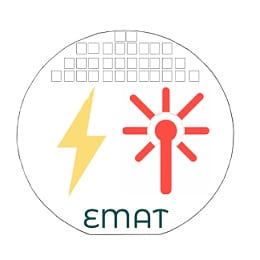Professor Kimerling is the primary or contributing instructor for the following courses:
3.003/3.004 Principles of Engineering Practice

Introduces students to the interdisplinary nature of 21st-century engineering projects with three threads of learning: a technical toolkit, a social science toolkit, and a methodology for problem-based learning. Students encounter the social, political, economic, and technological challenges of engineering practice by participating in actual engineering projects involving public transportaiton and information infrastructure with faculty and industry. Student teams create prototypes and mixed media reports with exercises in project planning, analysis, design, optimzation, demonstration, reporting and team building.
3.29-3.291 Special Problems in Emerging and Fundamental Studies

Optical materials design for semiconductors, dielectrics and polymers. Ray optics, electromagnetic optics and guided wave optics. Physics of light-matter interactions. Device design pronciples: LEDs, lasers, photodetectors, modulators, fiber and waveguide interconnects, optical filters, and photonic crystals. Device processing: crystal growth, substrate engineering, thin film deposition, etching and process integration for dielectric, silicon and compound semiconductor materials. Microphotonic integrated circuits. Telecom/datacom systems. Assignments include three design projects that emphasize materials, devices and systems applications.
Feel free to browse other MIT courses available online at http://ocw.mit.edu/index.html.
Jurgen Michel is the primary or contributing instructor for the following course:
3.155[J] Micro/Nano Processing Technology

Introduces the theory and technology of micro/nano fabrication. Includes lectures and laboratory sessions on basic processing techniques such as vacuum processes, lithography, diffusion, oxidation, and pattern transfer. Students fabricate solar cells, MEMS cantilevers, and microfluidic mixers. Emphasizes interrelationships between material properties and processing, device structure, and the electrical, mechanical, optical, chemical or biological behavior of devices. Provides background for thesis work in micro/nano fabrication. Students engage in extensive written and oral communication exercises.
Feel to browse previous versions of this course on OCW: https://ocw.mit.edu/courses/electrical-engineering-and-computer-science/6-152j-micro-nano-processing-technology-fall-2005/

